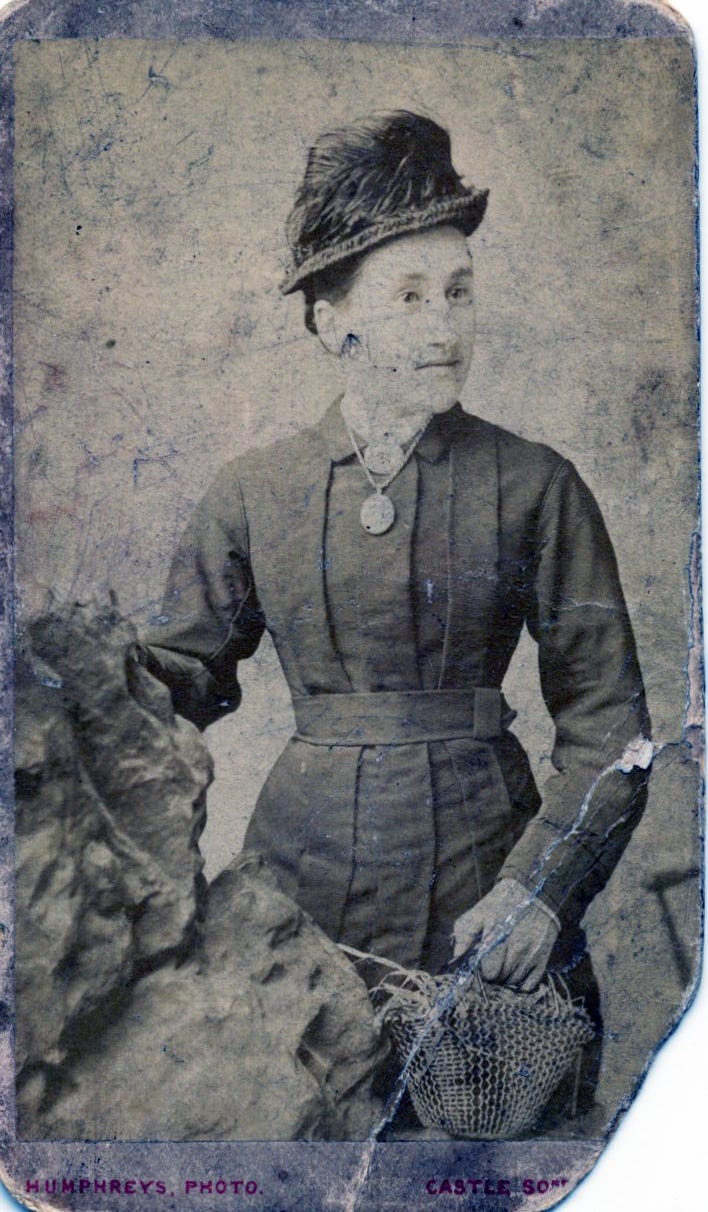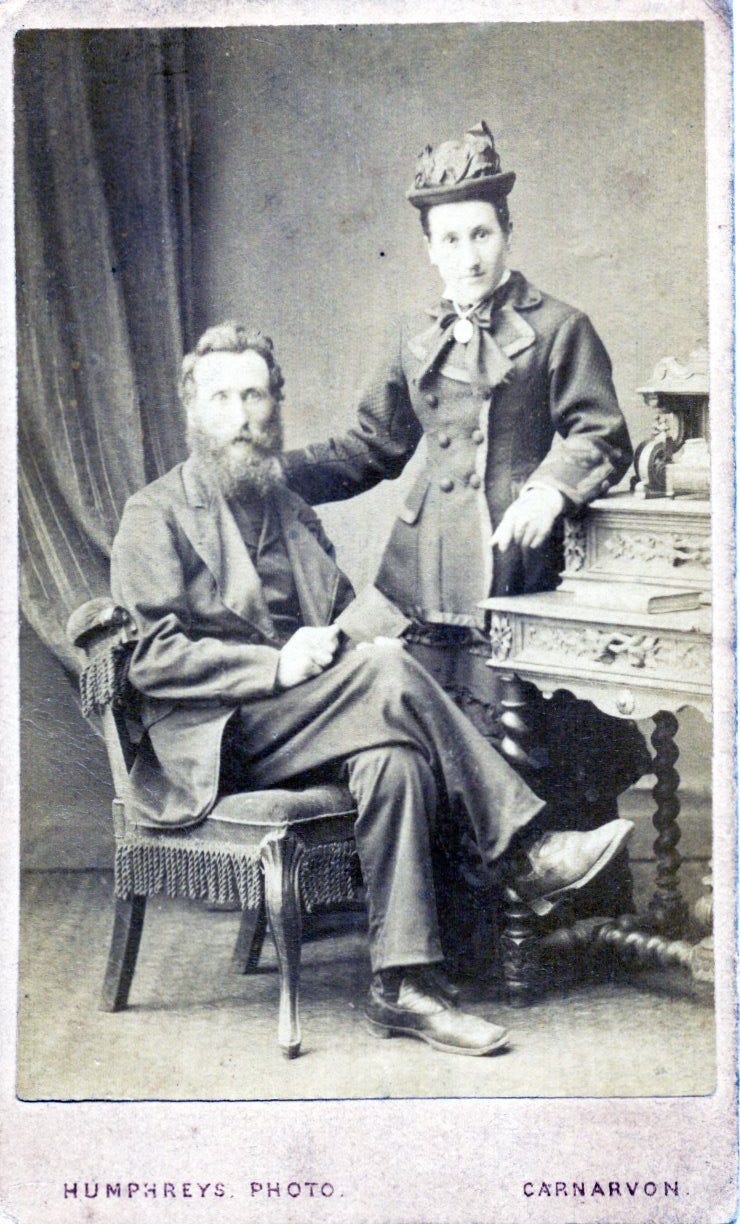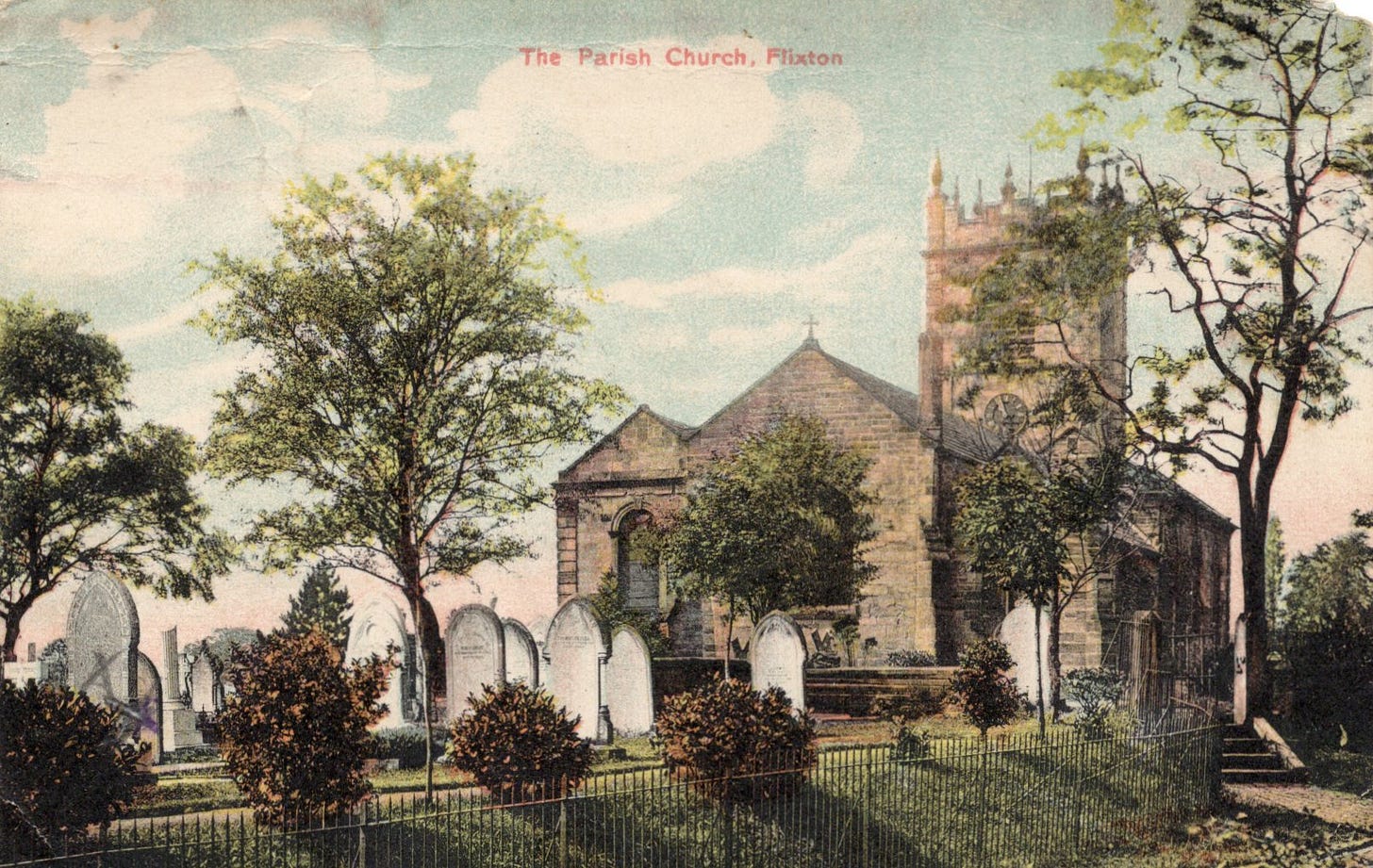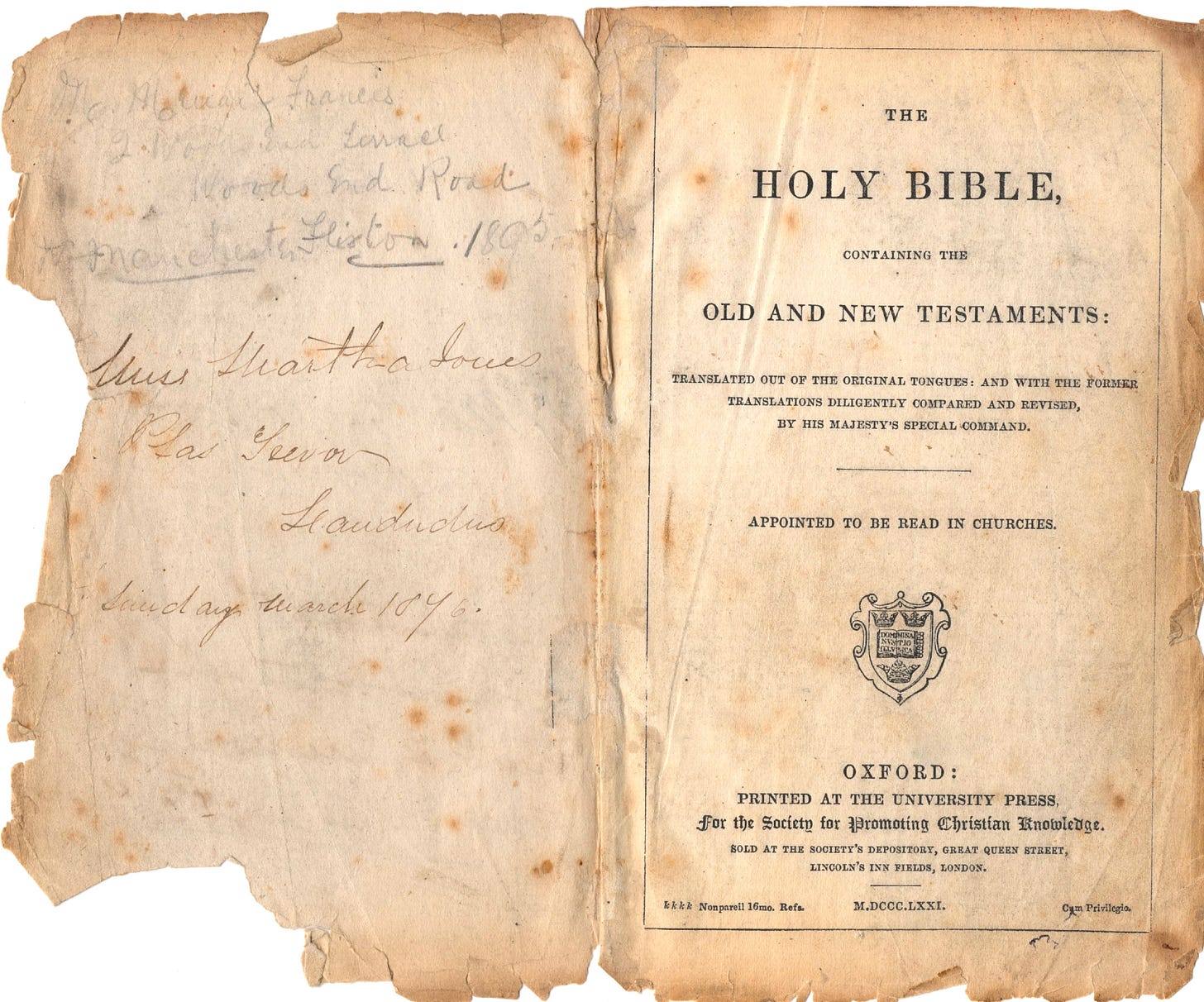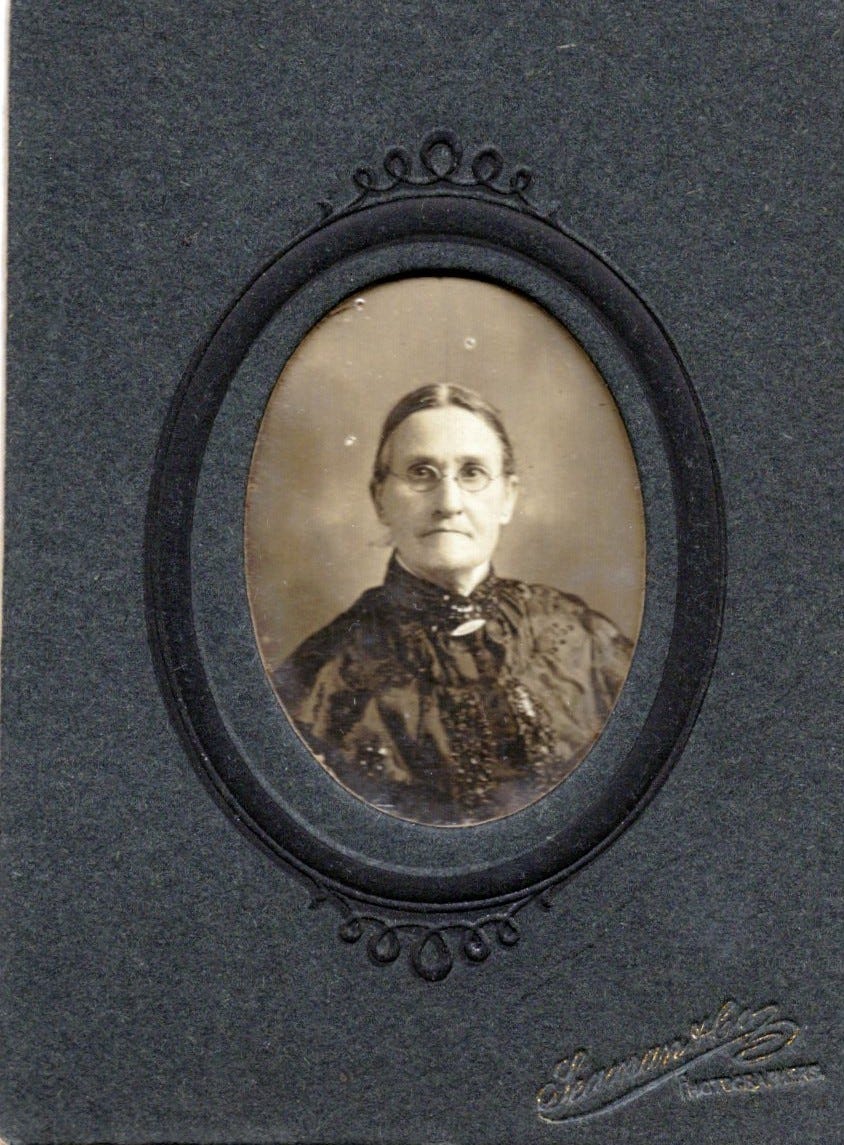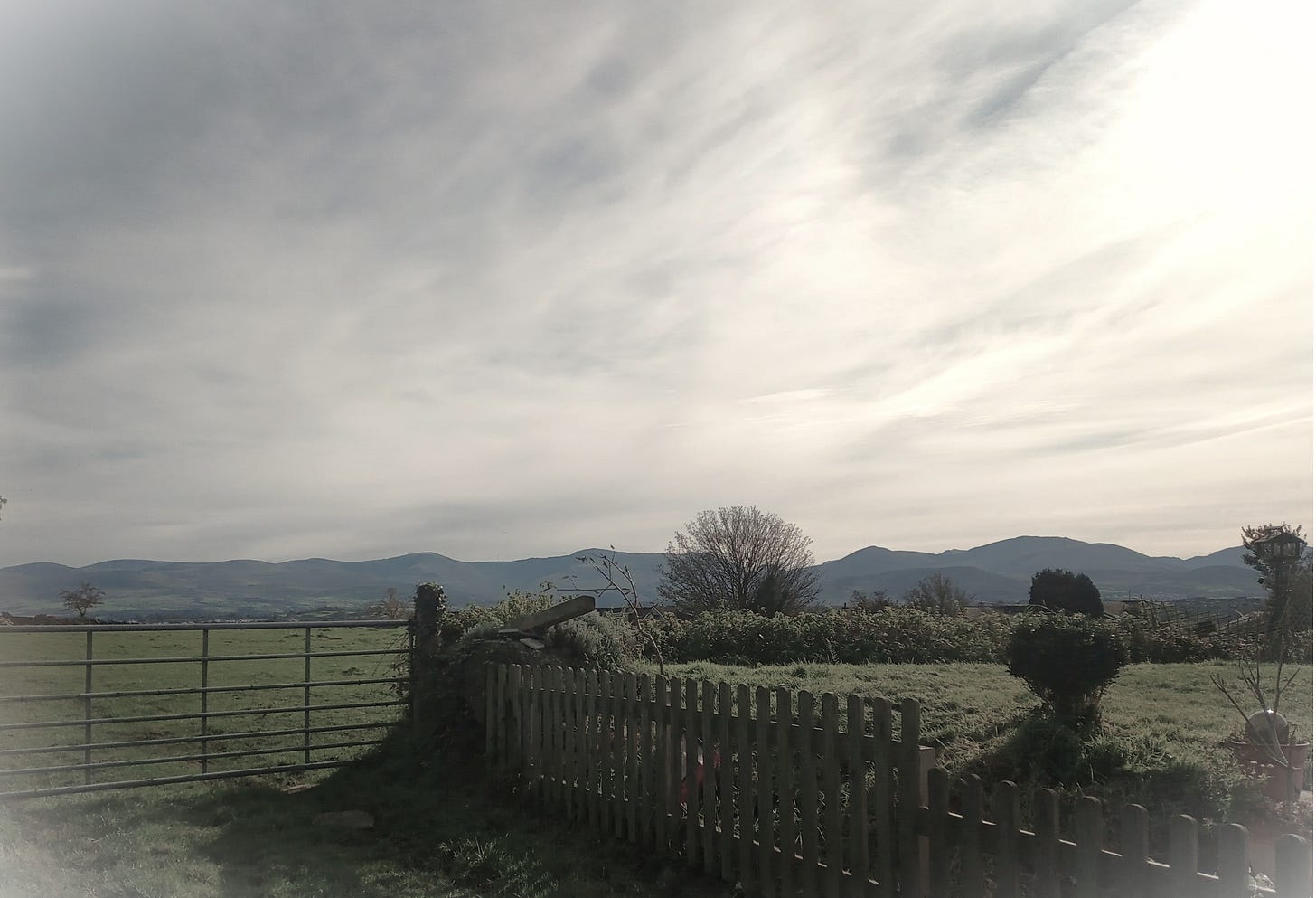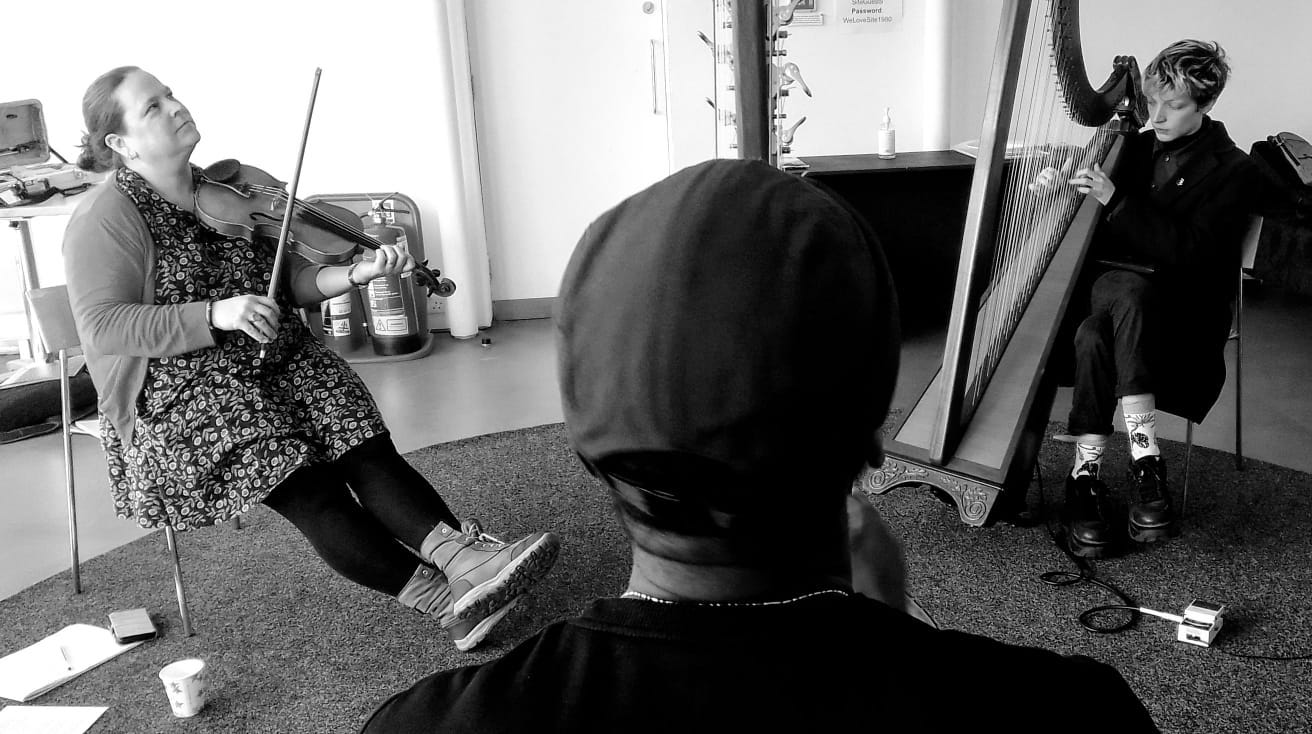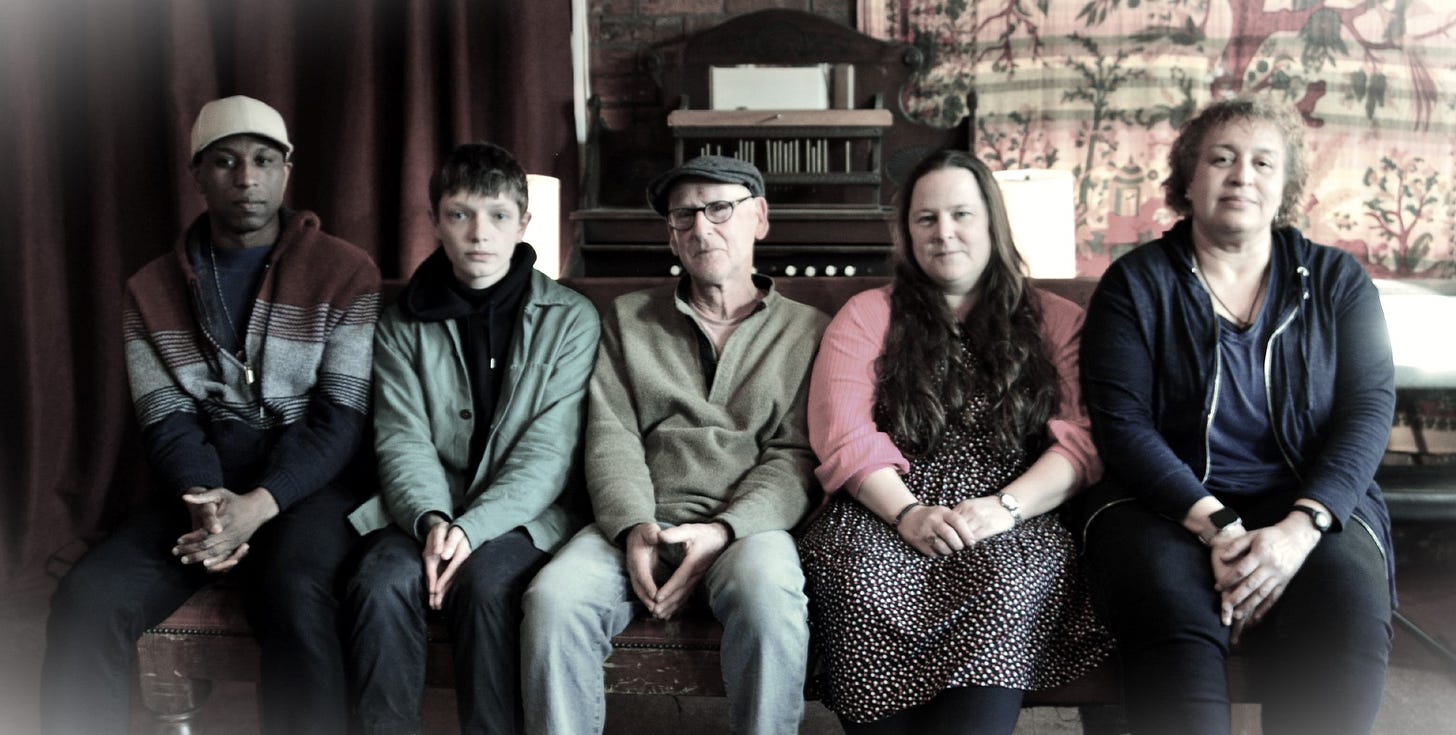They Layed Me in a House of Sorrow: Martha's Song (Cân Martha)
from Songs from the Tin Tabernacle: A Roots Romance
My great-grandmother Martha Jones has been in my thoughts a lot whilst I’ve been deep in developing Songs From the Tin Tabernacle: A Roots Romance the ancestry research project about creating new folk songs that explore my musical Welsh family bloodline, and it’s been emotional at times uncovering anything at all about her, whether parish record entry or fragile glass plate portrait photo. But, along with her book and her bible, I have the precious gift of hindsight, and like to imagine that if she had that equally precious gift of foresight, then we would meet together and agree on a new-found shared affinity..
Deep in my Francis family hope chest, I found two fragile portrait photos dating from the early 1880’s developed on glass & printed on small cards by a Caernarfon photographic studio. They were of my maternal great-grandmother Martha Menai Francis (née Jones) who was the last and 10th child born to Henry Jones of Rhyddlan Bach and Elinor Jones of Caernarfonshire in 1858, at Careg Iago a poor Ynys Môn (Anglesey) tenement farm looking across to the far silhouettes of the Eifionydd Hills on the Welsh mainland, to the land of the bards and druids where her mother came from. Martha grew up well-educated, reputedly writing & publishing Welsh poetry, and worked for a while as a secretary on the mainland, whilst the 1881 census entry has her listed as a farmer. She inherited Careg Iago the family farm following the death at only 26 years of her close brother Henry and then of her mother in 1882. In time she bore four children there with Benjamin Menai Francis a devout young printer from Caernarfon. Their first-born in 1885 was Hywel Henry my grandfather, who as a child she sang to, playing her American harmonium.
In 1893, like many others in this era, they started a new English life, migrating for work and for ‘opportunity’ for their children, to live in a small house on the closed brick terraced streets of Stockport, then to Flixton (Lancashire). Just four years later in 1897 and aged only 39, she was buried in St Michaels church graveyard there after two painful years with breast cancer. Her grave’s headstone is marked with a pencilled cross on a Victorian postcard I found in the hope chest.
Benjamin was known as a ‘fiery preacher’ on the non-conformist circuit, and was soon to be ordained as a congregationalist minister. He moved with his four young children the following year to the old West Riding of Yorkshire. His beloved ‘Mattie’ (Martha) never walked with her husband, by now the Rev Menai Francis, through the door of his newly built Salem Welsh Chapel in Carlton pit village, to stand and sing gymanfa songs with the miners’ families in their Tin Tabernacle.
To me it seems she had much sadness in her life, but perhaps she was sustained by her faith and her family, by writing poetry and making music. And it was in this way that I found myself drafting verses of Martha’s Song, the first of our Songs from the Tin Tabernacle, at this stage without much attention to metre or rhyme.. it could later be English chorus, Welsh verse? The named places in the verses refer to Martha and her family’s journeys, and for bringing them alive there are the old maps, tithe records, electoral rolls & census docs of these folk and their places. Home is from Eifionydd to Rhyddlan Bach to Henffordd Graig to Careg Iago to Woods End Terrace Flixton and then to St Michaels church graveyard.
So this song’s narrative tracks the joys and misfortunes of one amongst many other universally undertaken migration journeys, from rural peace and poverty to perhaps a rich but unforgiving urban life. It was prompted by finding Martha’s fading name with her various home addresses & dates pencilled into the front pages of her worn Anglican Mission Bible.
(a 1st draft in English)
They layed me in a house of sorrow / But I dream of a bed of joy
My dada brought my mami / From her blessed Eifionydd to his Rhyddlan Bach / But the land lord claimed back his tithe / To strip the earth and quarry black limestone
She lay in a house of sorrow / But dreams of a bed of joy
They went to Henffordd Graig / On the rocky Pentraeth Road / Though built of stones from the Heralds Crag / That night they burnt and broke in a hellish fire
She lay in a house of sorrow / But dreams of a bed of joy
Ayi I’m Martha Jones the tenth born / The runt in the Careg Iago sty / Ran free til my mami passed / Alone with the cows and those staring windows
I lie in a house of sorrow / But I dream of a bed of joy
Now my man has my faith and my children / Though my songs run deeper still / Took my prayer book for an English closet / In a dark Woods End terrace
I lie in a house of sorrow / But I dream of a bed of joy
No song in my new parish / St Michael I beg you dig my hole deep / Bring slate slab from Bethesda / There my Menai will carve my name
They layed me in a house of sorrow / Still I dream of a bed of joy
I’ve handed over this 1st draft now to our two project singer-songwriter-instrumentalists, Welsh triple-harpist & singer Cerys Hafana and Yorkshire violinist & singer Bryony Griffith, and here’s how they’ve developed it, unfolding Welsh narrative verses against the repeated call of its English chorus..
‘They Layed Me in a House of Sorrow (Martha’s Song/Cân Martha)’
I Ruddlan Bach, fe aeth fy mam i fyw / Gadael mynyddoedd Eifionydd ar ôl / Ond hawliwyd yr Arglwydd ei ddegwm a’i dir / Er mwyn tyrchu am galchfaen, y garreg fwyn ddu
This place brings me sorrow, in shadows I’m laid, / A house with no joy, it seems hopeless to pray / The pain in my breast growing deeper each day, / Thoughts of my mother’s land fading away
Symudon ymlaen at Henffordd Graig / Ar y ffordd tua Phentraeth, y gŵr a’r wraig / Cyn ei adael yn adfail, y tân a’r mwg / wedi llosgi pob carreg, eu chwalu yn llwyr
This place brings me sorrow, in shadows I’m laid, / A house with no joy, it seems hopeless to pray / The pain in my breast growing deeper each day, / Dreams of my mother’s land drifting away
Fi oedd Martha, y 10fed anedig / Yn chwarae yng nghaeau Iago a’i garreg / Ymlaen i Landudno, ac yna Caernarfon / Cwrdd â fy Menai, ei inc ac ei sermon
This place brings me sorrow, in shadows I’m laid, / A house with no joy, it seems hopeless to pray / The pain in my breast growing deeper each day, / Seas of my mother’s land floating away
Cludais fy Meibl ar draws y ffin / I deras Woods End, er mwyn Duw, er mwyn dyn / Y poen a’r gân, yn ddwfn yn fy mron / Yn gaeth i’r tŷ teras, yn gaeth i’r wlad hon
This place brings me sorrow, in shadows I’m laid, / A house with no joy, it seems hopeless to pray / The pain in my breast growing deeper each day, / Songs of my mother’s land slipping away
Reading these revised & now duo-lingual lyrics, seeing their vibrancy and feeling their shape, simplicity & steady progression, as what has been a very personal work in progress comes to life & starts to reach out, is strangely moving despite not fully understanding much of the Welsh verses. Great-grandma Martha has recovered her strength, has been set free from the past, adopted, and shepherded with respect and pride onto the first few pages of our 21st century Roots Romance. Here are Cerys’ Welsh verses translated back into English..
Welsh-English verses translation
I Ruddlan Bach, fe aeth fy mam i fyw / Gadael mynyddoedd Eifionydd ar ôl (My mother went to live in Rhuddlan Bach / Leaving the mountains of Eifionydd behind) Ond hawliwyd yr Arglwydd ei ddegwm a’i dir / Er mwyn tyrchu am galchfaen, y garreg fwyn ddu (But the lord claimed his tithe and his land / To dig for limestone, the soft black rock)
Symudon ymlaen at Henffordd Graig / Ar y ffordd tua Phentraeth, y gŵr a’r wraig (They moved on to Henffordd Graig / On the road towards Pentraeth, the husband and wife) Cyn ei adael yn adfail, y tân a’r mwg / wedi llosgi pob carreg, eu chwalu yn llwyr (Before leaving it a ruin, the fire and the smoke / had burnt every stone, shattered it all)
Fi oedd Martha, y 10fed anedig / Yn chwarae yng nghaeau Iago a’i garreg (I was Martha, the 10th born / Playing in the fields of Iago and his Stone) Ymlaen i Landudno, yna Caernarfon / Cwrdd fy Menai, ei inc ac ei sermon (I went on to Llandudno, and then to Caernarfon / Where I met my Menai, his ink and his sermon)
Cludais fy Meibl ar draws y ffin / I deras Woods End, er mwyn Duw, er mwyn dyn (I took my Bible over the border / To a terrace in Woods End, for God and for man) Y poen a’r gan, yn ddwfn yn fy mron / Yn gaeth i’r tŷ teras, yn gaeth i’r wlad hon (The pain and the song, deep in my breast / Trapped in this terrace house, trapped in this country)
Having settled on this collaborative process for developing lyric-writing, we arranged, rehearsed, live-recorded and gathered video footage for the first four Songs from the Tin Tabernacle in two intensive studio days in Sheffield, and I offer here a sneak preview of Martha’s Song/Cân Martha. It’s the first demo track to emerge and will be released on June 18th as the soundtrack to a video made by filmmaker João Paulo Simoes.
Cerys Hafana (triple harp/vocals/songwriting) Bryony Griffith (fiddle/vocals/songwriting) Cath Carr (tenor steelpans) Kadialy Kouyate (kora) Tony Francis Bowring (bass/producer)




